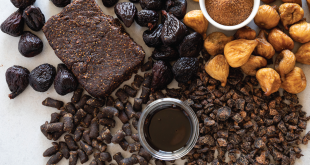How to Unlock this Emerging Market for Your Product
By the year 2021, Muslims will outnumber Chinese in Canada, according to a projection from Statistics Canada based on current growth rates. Despite the statistics, though, most companies allocate far fewer marketing dollars on reaching the Muslim consumer, if any at all. It may have something to do with a single word that means a lot to Muslims, but very little to anyone outside the community: halal.
What does it mean for a product to be halal?
Very simply, halal means “permissible.” Something that is halal is allowed by the Muslim religion based on guidelines set out in the sacred texts, specifically the Qur’an. Within the food market, halal is used to refer to what Muslims are allowed to consume; however, it’s more than just food, it’s a complete lifestyle. Everything that is allowed for a Muslim to do is halal, and every single industry can have a halal component to it.
For the Muslim consumer, it means a lot of time spent scouring food labels. Ultimately, many mainstream products are passed over by Muslim consumers because they have no way of knowing if they are halal, and they prefer to err on the side of caution. It’s not so different for how things used to be for consumers with allergies and non-religious dietary restrictions.
Today, many mainstream food packages bear labels like “school safe,” “nut-free” and “gluten-free.” These certifications make it possible for consumers to choose products with confidence. What few people realize is that halal certification is also available, and it can open up your product to a market with a 10 per cent growth rate.
How do I know if my product is halal?
For a product to be certified halal, there must be strict adherence to an established but evolving set of guidelines. First, you need to look for the presence of things that are not halal for Muslims to consume – are they found within the food or in the manufacturing process of the item? For example, when it comes to CPG, any animal and alcohol content within the product must be scrutinized, as these are the two main categories of impermissible ingredients. Regarding the animal content, the only time Muslims can consume it is after it has gone through a proper procedure.
Once those aspects are ruled out, an inspection of the manufacturing process follows. You can have products which are completely fine from the ingredient standpoint, but the equipment used or the manufacturing process itself may not be halal.
For example, in a processing facility, there must be a complete sanitization to remove remnants of the previous production run. Furthermore, the product cannot be stored near a non-halal product to eliminate the risk of mislabelling or cross-contamination before packaging.
Can my business self-regulate and be certified halal?
Realistically, there’s only so much you can train employees, especially those not familiar with halal. There’s a high risk of human error, especially when there’s turnover in the company. How much money are you willing to spend on repeated training and mitigating any public relations risks that can occur due to improper management of halal standards?
The simplest solution is to engage the help of a certifying agency. But who?
There are no government regulations for halal, meaning anyone can set up a halal certification body. Prior to 2004, there were two halal certifying bodies in Canada. Today there are many, and that just adds to the challenge for both consumers and businesses.
Further compounding the issue is the dynamic nature of the food industry. New products and new processes are developed all the time, and it is not always immediately apparent whether or not they are halal. This requires research, conversation and deep knowledge of the subject. In the end, there should be no guesswork either for your business or for the consumer.
The best choice is an agency that does more than simply inspect once and award a label. In other words, don’t go for a company that is just after a paycheque. Better to hire an agency, such as the Halal Monitoring Authority, that evaluates your entire operation as a partner, is connected to the community you want to reach and has their utmost trust. Remember, your company will be intimately associated with the agency you choose.
Is halal certification really worth the effort?
There’s huge value in the growing numbers of the halal demographic. At the moment, there may be a lot of people that are not buying your product because it’s not meeting their requirements. If you want the confidence of those consumers, the investment you’ll need to make is minimal relative to the potential returns. Don’t forget, making your product inclusive for Muslims does not exclude it from other markets. Have you ever eaten a kosher pickle? It’s really not so different.
The Muslim community is only growing in Canada; it’s not going anywhere, and with the spending power being much more than it ever was before, it just makes sense for a company to look at halal certification, and a certification the community trusts.
 Canadian Food Business
Canadian Food Business




